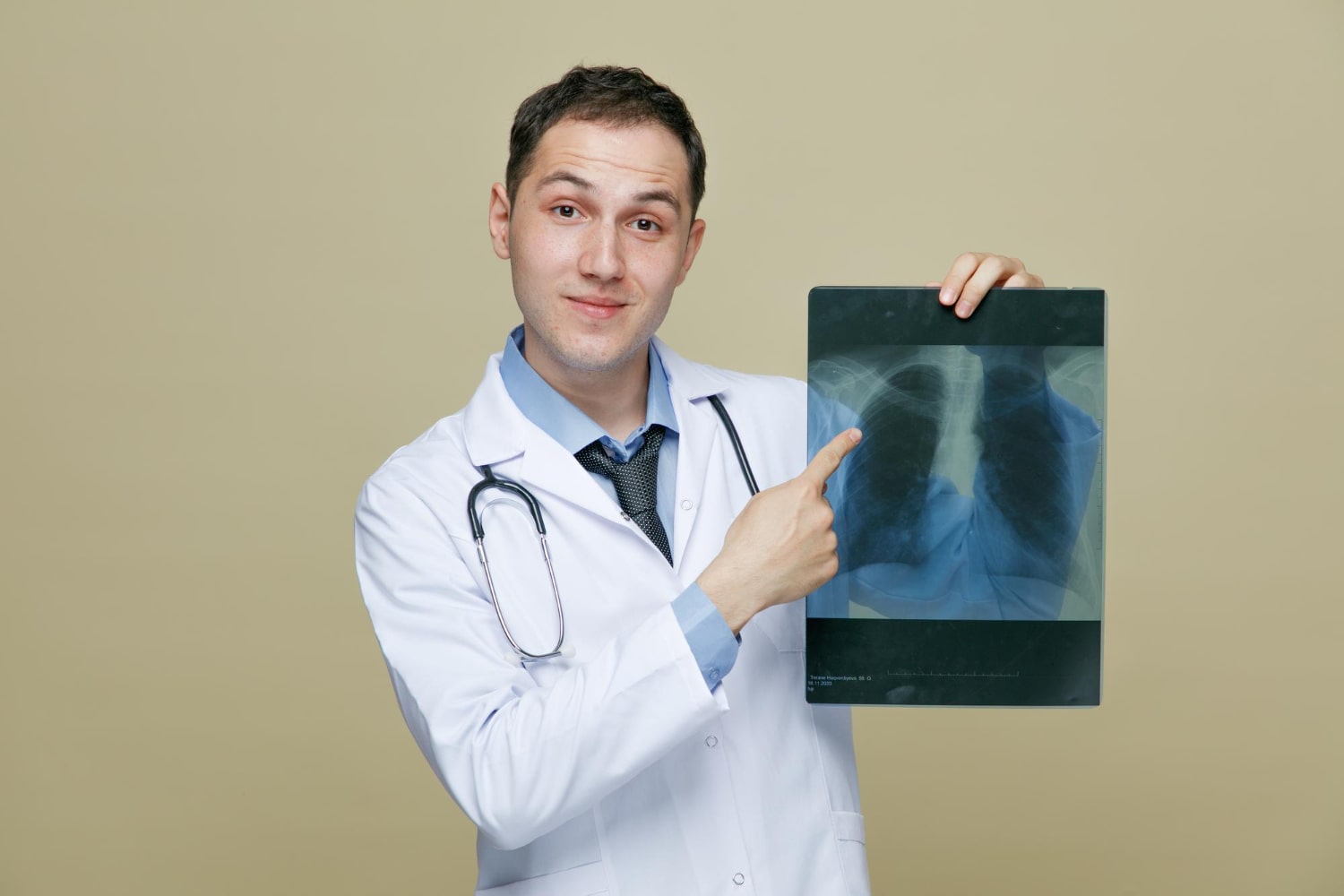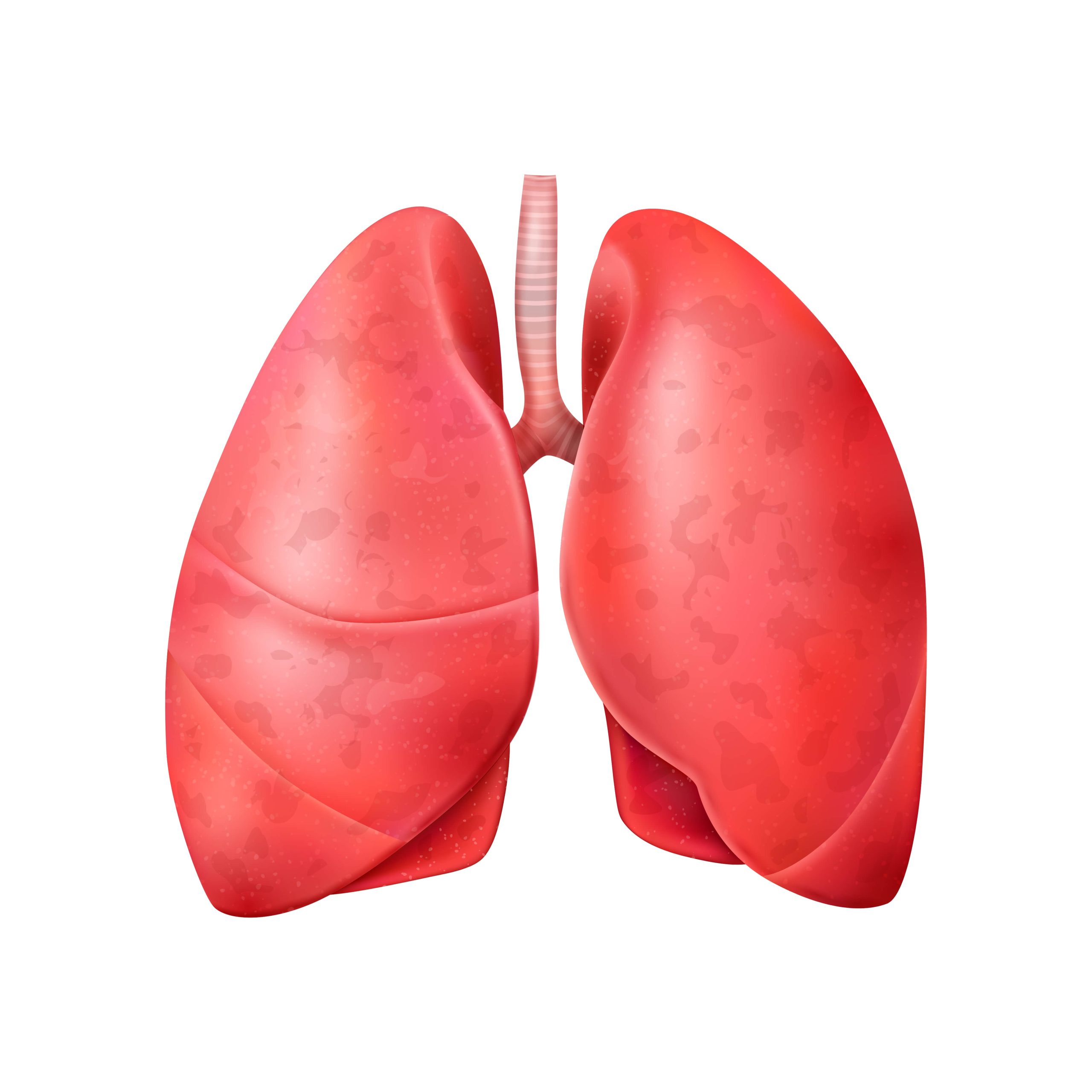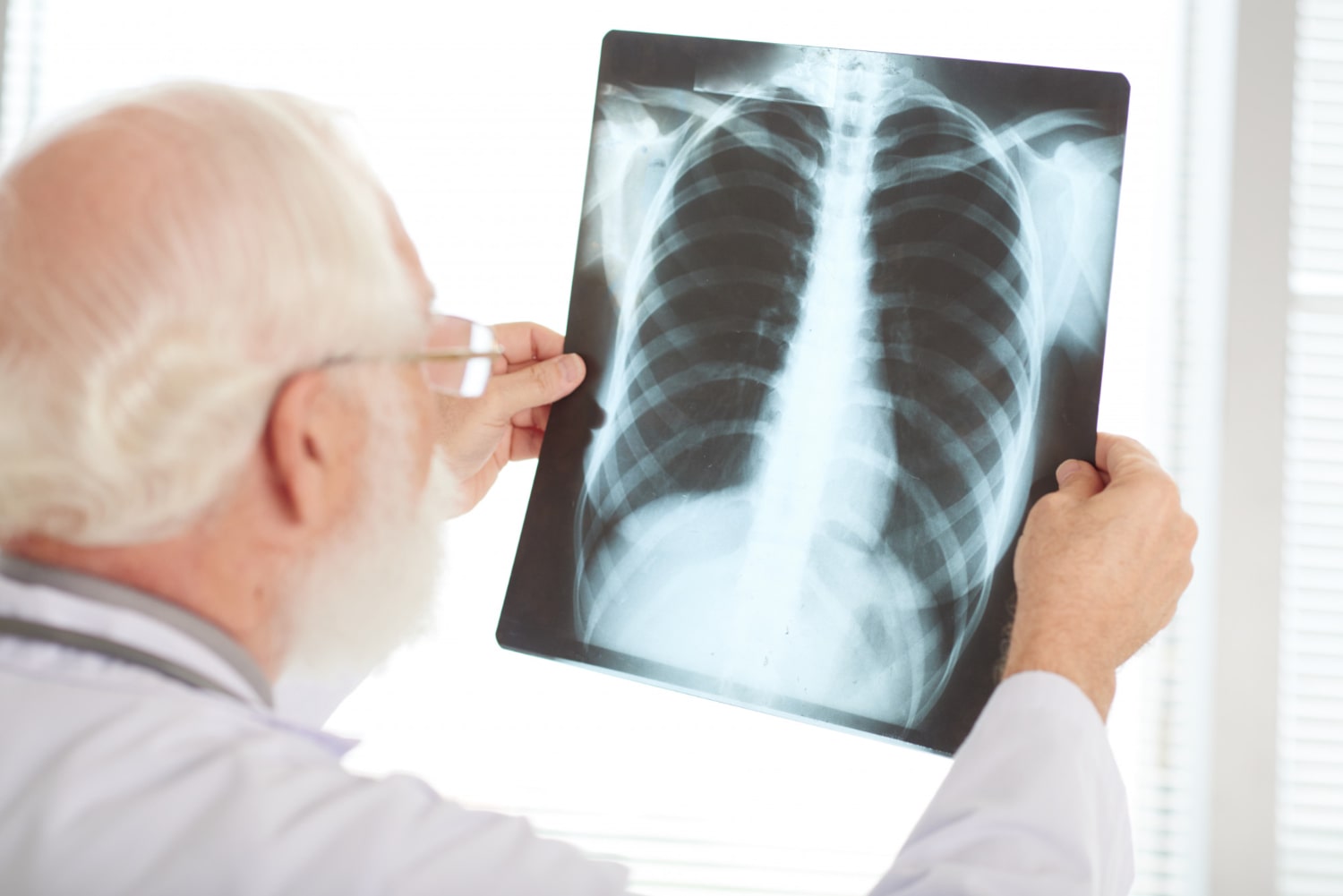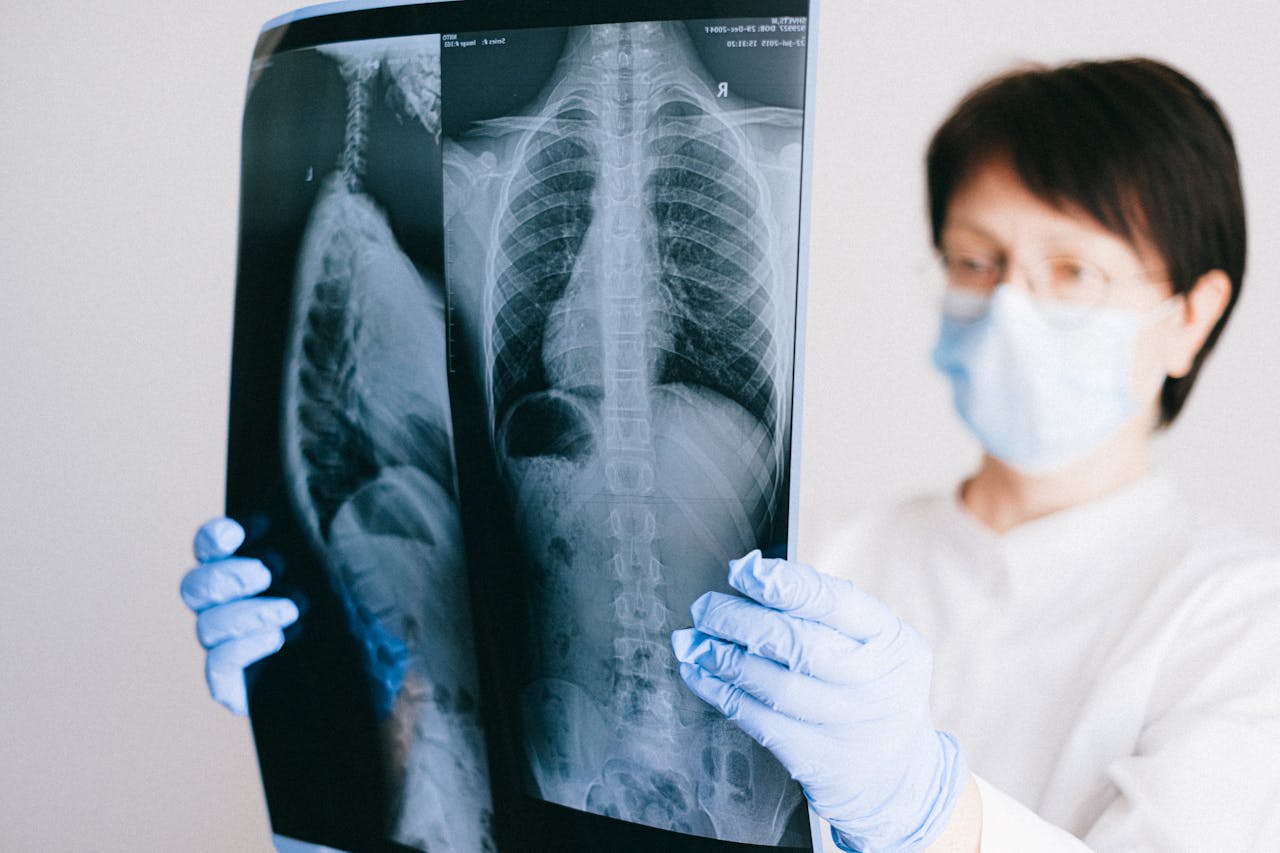The answer to the question of what causes lung nodules includes infections, air pollution, inflammatory diseases, smoking, tumors, and congenital anomalies. Additionally, genetic predispositions play an important role in this regard. Most tumors formed in the lungs are benign and do not require treatment. Medical follow-up alone is sufficient. For malignant nodules, lung nodule treatment involves surgical removal. Below, you can find detailed answers to the question of what causes lung nodules.
What Are Lung Nodules?

Lung nodules are oval or round lesions in the lung tissue that are smaller than 3 cm in diameter. These lesions typically have smooth borders. Most lung nodules diagnosed via computed tomography (CT) are benign. If the nodules do not grow or show irregular borders during periodic follow-ups, treatment is unnecessary. Malignant nodules, however, require immediate treatment. Lung nodule treatment involves surgically removing the lesion.
The diagnosis of lung nodules is made through computed tomography. High-resolution CT imaging allows for the detection of even millimeter-sized lesions. The appearance, such as “ground-glass opacity,” and the borders and size of the nodules are evaluated in detail. In some cases, the risk level of the lesion can be determined without a biopsy.
What Causes Lung Nodules?
 The causes of lung nodules vary. Common reasons are detailed below:
The causes of lung nodules vary. Common reasons are detailed below:
1 – Infections
Infections are a major cause of nodules. Lesions may form in the lungs due to infections, and these lesions can be benign or malignant. After severe infections, patients’ lungs should be examined with CT. Some infections that can cause lung nodules include:
| Disease | Description |
|---|---|
| Tuberculosis | Caused by Mycobacterium tuberculosis, tuberculosis (commonly known as TB) can lead to lesions in lung tissue. |
| Fungal Infections | Fungal infections in the lungs, such as coccidioidomycosis and histoplasmosis, can cause lesions, especially in immunocompromised patients. |
| Bacterial and Viral Infections | Some bacterial and viral infections, such as pneumonia, can damage the lungs if severe or left untreated. In rare cases, lung nodules may appear after COVID-19. |
2 – Inflammatory Diseases
Inflammatory diseases, such as sarcoidosis or rheumatoid arthritis, can also cause nodules in the lungs.
3 – Lung Cancer
Malignant tumors are another reason for lung nodules. As cancer progresses, nodules are more likely to appear. Types of lung cancer that may cause nodules include adenocarcinoma, small cell lung cancer, and squamous cell carcinoma.
4 – Metastasis
Cancers from other parts of the body can spread to the lungs, first appearing as nodules. Cancers that commonly metastasize to the lungs include:
- Breast cancer
- Kidney cancer
- Melanoma
- Colorectal cancer
Metastatic nodules are malignant and require treatment.
5 – Smoking
Smoking is a significant risk factor for lung nodules. Toxic gases and chemicals from cigarette smoke greatly increase the risk of cancer and nodules.
6 – Radiation
Prolonged exposure to radiation increases cancer risk, which may manifest as nodules in the lungs.
7 – Air Pollution
Industrial emissions and air pollution expose people to harmful gases and particulates, leading to the formation of lung nodules.
8 – Chemical Substances
Exposure to chemical substances, often occupational, poses a significant health risk and can lead to lung nodules.
9 – Congenital Anomalies
Congenital anomalies that occur during fetal development may cause lung nodules, which should be monitored after birth.
10 – Benign Tumors
Most lung nodules are benign, meaning that benign tumors are a common cause of these formations.
What Are the Symptoms of Lung Nodules?
Lung nodules rarely cause symptoms, making them difficult to diagnose. Most are discovered incidentally during imaging tests. When symptoms occur, they may include:
- Cough
- Shortness of breath
- Wheezing
- Chest pain
- Bloody sputum
- Loss of appetite
These symptoms may have other causes, so a specialist should be consulted for a proper diagnosis.
How Are Lung Nodules Evaluated?
 Most lung nodules are benign and do not require treatment. However, a biopsy is usually necessary to confirm a nodule’s benign nature. Evaluation includes:
Most lung nodules are benign and do not require treatment. However, a biopsy is usually necessary to confirm a nodule’s benign nature. Evaluation includes:
- Size of the nodule
- Border irregularities
- Biopsy results (if available)
- Patient’s age
- Smoking history
- History of cancer
- Family history of lung cancer
- PET scan results (if applicable)
How Is Lung Nodule Treatment Performed?
Treatment involves surgical removal of the nodule. Minimally invasive methods like single-port VATS are preferred for lower risk. Steps include:
- Making a small incision based on the nodule’s location
- Inserting a camera to locate the nodule
- Removing the nodule using specialized instruments
For malignant or high-risk nodules, immediate treatment by experienced surgeons is essential. It is very important to choose experienced surgeons for lung nodule treatment. Prof. Dr. Semih Halezeroğlu has experience in surgical treatment of lung nodules and cancer. You can contact us to get information about treatment methods.
How Many mm Does a Lung Nodule Require Surgery?
It is not possible to determine whether a lung nodule is high risk or malignant by looking at its size alone. The risk increases with size, and nodules larger than 1 cm are more likely to be risky. Lung nodule treatment comes to the fore in such cases. The type, structure, size and characteristics of the nodule diagnosed with CT are taken into consideration to decide whether treatment is necessary or not. In this process, the patient’s age, previous cancer history, smoking history and whether there is a lung cancer case in the family are also taken into account.
Frequently Asked Questions About What Causes Lung Nodules
Frequently asked questions and their answers regarding what causes lung nodules are listed below.
1 – Do Lung Nodules Go Away on Their Own?
There is a possibility that some nodules will shrink and go away on their own. However, the probability of this happening is low. After diagnosis, the necessary evaluations should be made and lung nodule treatment or follow-up process should be started without delay.
2 – Do Lung Nodules Cause Cough?
Nodules that occur in the lungs rarely cause symptoms. Coughing is also rarely seen in this context.
3 – What are the Comments of Those with Lung Nodules?
In a significant number of patients diagnosed with lung nodules, it is known that the nodules are benign. In malignant cases, the success rate is high with early diagnosis and treatment.
4 – What Causes Lung Nodules?
The answer to the question of what causes lung nodules can be given as; air pollution, tumors, infections, inflammatory diseases, radiation, smoking and congenital anomalies.
5 – Is Surgery Necessary for Lung Nodule Treatment?
In high-risk and malignant cases, surgery is applied as lung nodule treatment. In low-risk cases, nodules are periodically monitored to check for growth and irregularity in the borders.



